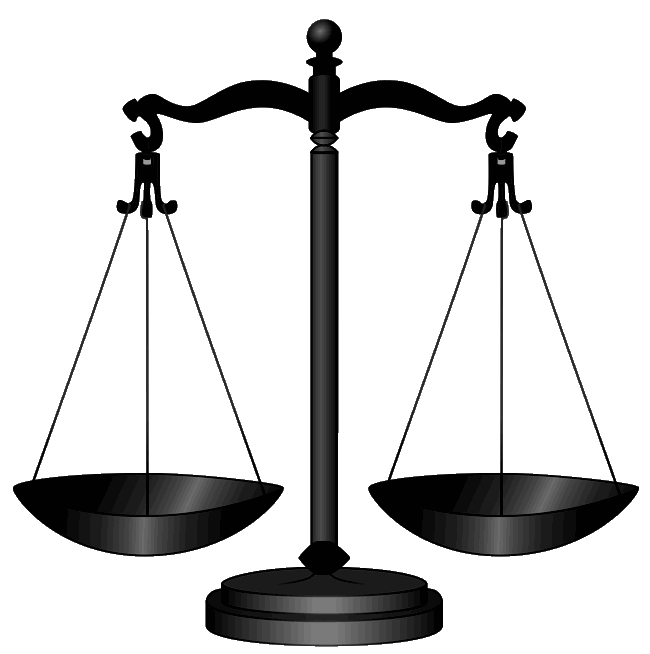|
Muhammad Jamal Ud Din
Maulana Muhammad Jamal ud Din (; born 1 January 1961) is a Pakistani politician who has been a member of the National Assembly of Pakistan, since August 2018. Previously he was a member of the National Assembly from June 2013 to May 2018. Early life He was born on 1 January 1961. Political career He was elected to the National Assembly of Pakistan as a candidate of Jamiat Ulema-e-Islam (F) from Constituency NA-42 (Tribal Area-VII) in 2013 Pakistani general election. He received 3,468 votes and defeated an independent candidate, Qayyum Sher Mahsud. He was re-elected to the National Assembly as a candidate of Muttahida Majlis-e-Amal (MMA) from Constituency NA-49 (Tribal Area-X) in 2018 Pakistani general election. He received 7,794 votes and defeated Dost Muhammad Khan, a candidate of Pakistan Tehreek-e-Insaf The Pakistan Tehreek-e-Insaf (PTI; ur, , ) is a political party in Pakistan. It was founded in 1996 by Pakistani cricketer-turned-politician Imran Khan, who serv ... [...More Info...] [...Related Items...] OR: [Wikipedia] [Google] [Baidu] |
National Assembly Of Pakistan
The National Assembly ( ur, , translit=Aiwān-e-Zairīñ, , or ur, قومی اسمبلی, Romanization, romanized: ''Qaumi Assembly'') is the lower house, lower legislative house of the bicameralism, bicameral Parliament of Pakistan, which also comprises the Senate of Pakistan (upper house). The National Assembly and the Senate both convene at Parliament House in Islamabad, the capital of Pakistan. The National Assembly is a democratically elected body consisting of a total of 342 members who are referred to as Members of the National Assembly (MNAs), of which 272 are directly elected members and 70 reserved seats for women and religious minorities from all over the country. A political party or a coalition must secure 172 seats to obtain and preserve a majority. Members are elected through the first-past-the-post system under universal adult suffrage, representing electoral districts known as National Assembly constituencies. According to the Constitution of Pakistan, constit ... [...More Info...] [...Related Items...] OR: [Wikipedia] [Google] [Baidu] |
NA-49 (Tribal Area-X)
NA-49 (Tribal Area-X) ( ur, این اے-۴۲، قباَئلی علاقہ-۷) is a constituency for the National Assembly of Pakistan comprising Ladha Subdivision, Makin Subdivision, Sararogha Subdivision, and Serwekai Subdivision of South Waziristan. Members of Parliament 2002–2018: NA-42 (Tribal Area-VII) Since 2018: NA-49 (Tribal Area-X) Election 2002 General elections were held on 10 Oct 2002. Muhammad Miraj-ud-Din an Independent candidate won by 12,360 votes. Election 2008 Due to security reason elections didn't take place. Election 2013 General elections were held on 11 May 2013. Muhammad Jamal Ud Din of JUI-F won by 3,468 votes and became the member of National Assembly. Election 2018 General elections were held on 25 July 2018. †''JUI-F contested as part of MMA'' See also * NA-48 (Tribal Area-IX) *NA-50 (Tribal Area-XI) NA-43 South Waziristan Upper-cum-South Waziristan Lower () is a constituency for the National Assembly of Paki ... [...More Info...] [...Related Items...] OR: [Wikipedia] [Google] [Baidu] |
Constituency NA-42
NA-49 (Tribal Area-X) ( ur, این اے-۴۲، قباَئلی علاقہ-۷) is a constituency for the National Assembly of Pakistan comprising Ladha Subdivision, Makin Subdivision, Sararogha Subdivision, and Serwekai Subdivision of South Waziristan. Members of Parliament 2002–2018: NA-42 (Tribal Area-VII) Since 2018: NA-49 (Tribal Area-X) Election 2002 General elections were held on 10 Oct 2002. Muhammad Miraj-ud-Din an Independent candidate won by 12,360 votes. Election 2008 Due to security reason elections didn't take place. Election 2013 General elections were held on 11 May 2013. Muhammad Jamal Ud Din of JUI-F won by 3,468 votes and became the member of National Assembly. Election 2018 General elections were held on 25 July 2018. †''JUI-F contested as part of MMA'' See also * NA-48 (Tribal Area-IX) *NA-50 (Tribal Area-XI) NA-43 South Waziristan Upper-cum-South Waziristan Lower () is a constituency for the National Assembly of Paki ... [...More Info...] [...Related Items...] OR: [Wikipedia] [Google] [Baidu] |
Muttahida Majlis-e-Amal
The Muttahida Majlis–e–Amal (MMA; Urdu: , "United Council of Action") is a political alliance consisting of conservative, Islamist, religious, and far-right parties of Pakistan. Naeem Siddiqui (the founder of Tehreek e Islami) proposed such an alliance of all the religious parties back in the 1990s. Qazi Hussain Ahmad endeavored for it and due to his efforts, it was formed in 2002 in a direct opposition to the policies led by President Pervez Musharraf to support for the War in Afghanistan. The alliance more densely consolidated its position during the nationwide general elections held in 2002. The JUI(F) led by its leader, the cleric Fazl-ur-Rahman, retained the most of the political momentum in the alliance, still some portion of the leadership comes from the JI. The MMA retained the provisional government of Khyber–Pakhtunkhwa and remained in alliance with PMLQ in Balochistan. Much public criticism and disapproval nonetheless grew against the alliance. Despite i ... [...More Info...] [...Related Items...] OR: [Wikipedia] [Google] [Baidu] |
Jamiat Ulema-e-Islam (F)
Jamiat Ulema-e-Islam Pakistan (Fazl) also Jamiat Ulema-e-Islam (F) or simply as Jamiat Ulema-e-Islam (Urdu: ; ; JUI-F) is a Deobandi Sunni political party in Pakistan. Established as the ''Jamiat Ulema-e-Islam'' in 1945, it is the result of a factional split in 1988, ''F'' standing for the name of its leader, Fazal-ur-Rehman. It is almost entirely based in southern Khyber Pakhtunkhwa and northern Balochistan, which are mostly inhabited by Pashtuns. The JUI-S faction, led by Samiul Haq, is of regional significance in Khyber Pakhtunkhwa but has no representation on the national level. The split of JUI into two factions was due to dissent over the policy of Pakistani president Zia-ul-Haq of supporting Mujahideen outfits in the Afghanistan war during the 1980s. One of its faction, Jamiat Ulama-e-Islam Nazryati (JUI-N), split in 2007 and merged back into JUI-F in 2016. On 29 December 2020, Jamiat Ulema-e-Islam Pakistan (JUI-P) split as a separate political party under the le ... [...More Info...] [...Related Items...] OR: [Wikipedia] [Google] [Baidu] |
2013 Pakistani General Election
General elections were held in Pakistan on Saturday 11 May 2013 to elect the members of the 14th National Assembly and the four Provincial Assemblies. The three major parties were the Pakistan Muslim League (N) (PML-N) led by Nawaz Sharif, the Pakistan People's Party (PPP) led by President Asif Ali Zardari and the Pakistan Tehreek-e-Insaf (PTI) led by Imran Khan. Prior to the elections, the ruling PPP formed an alliance with the Pakistan Muslim League (Q) and Awami National Party, while the main opposition party, the PML-N allied with the Pakistan Muslim League (F) and Baloch parties. The PTI led by cricketer-turned-politician Imran Khan, also emerged as a key-player. The result was a hung parliament, with the PML-N receiving the most votes and winning the most seats, but falling six seats short of a majority. However, following the elections, 19 independent MPs joined the PML-N, allowing it to form a government alone with Nawaz Sharif as new Prime Minister. In the provinci ... [...More Info...] [...Related Items...] OR: [Wikipedia] [Google] [Baidu] |
2018 Pakistani General Election
General elections were held in Pakistan on Wednesday, 25 July 2018 to elect the members of 15th National Assembly and the four Provincial Assemblies. The three major parties Pakistan Tehreek-e-Insaf (PTI) led by Imran Khan, the Pakistan Muslim League led by Shehbaz Sharif and the Pakistan Peoples Party led by Bilawal Bhutto. The PTI won the most seats in the National Assembly but fell short of a majority; the party subsequently formed a coalition government with several smaller parties. At the provincial level, the PTI remained the largest party in Khyber Pakhtunkhwa (KP); the Pakistan Peoples Party (PPP) retained its dominance in Sindh and the newly formed Balochistan Awami Party (BAP) emerged as the largest party in Balochistan. In Punjab, the result was a hung parliament with the Pakistan Muslim League (N) (PML-N) winning the most seats. However, after several independents MPAs joined the PTI, the latter became the largest party and was able to form a government. Opinion ... [...More Info...] [...Related Items...] OR: [Wikipedia] [Google] [Baidu] |
Pakistan Tehreek-e-Insaf
The Pakistan Tehreek-e-Insaf (PTI; ur, , ) is a political party in Pakistan. It was founded in 1996 by Pakistani cricketer-turned-politician Imran Khan, who served as the country's prime minister from 2018 to 2022. The PTI is one of the three major Pakistani political parties alongside the Pakistan Muslim League–Nawaz (PML–N) and the Pakistan People's Party (PPP), and it is the largest party in terms of representation in the National Assembly of Pakistan since the 2018 general election. With over 10 million members in Pakistan and abroad, it claims to be the country's largest political party by primary membership as well as one of the largest political parties in the world. Despite Khan's popular persona in Pakistan, the PTI had limited initial success: it failed to win, as a collective, a single seat in the 1997 general election and the 2002 general election; only Khan himself was able to win a seat. Throughout the 2000s, the PTI remained in opposition to the presi ... [...More Info...] [...Related Items...] OR: [Wikipedia] [Google] [Baidu] |
Living People
Related categories * :Year of birth missing (living people) / :Year of birth unknown * :Date of birth missing (living people) / :Date of birth unknown * :Place of birth missing (living people) / :Place of birth unknown * :Year of death missing / :Year of death unknown * :Date of death missing / :Date of death unknown * :Place of death missing / :Place of death unknown * :Missing middle or first names See also * :Dead people * :Template:L, which generates this category or death years, and birth year and sort keys. : {{DEFAULTSORT:Living people 21st-century people People by status ... [...More Info...] [...Related Items...] OR: [Wikipedia] [Google] [Baidu] |
People From Khyber Pakhtunkhwa
A person ( : people) is a being that has certain capacities or attributes such as reason, morality, consciousness or self-consciousness, and being a part of a culturally established form of social relations such as kinship, ownership of property, or legal responsibility. The defining features of personhood and, consequently, what makes a person count as a person, differ widely among cultures and contexts. In addition to the question of personhood, of what makes a being count as a person to begin with, there are further questions about personal identity and self: both about what makes any particular person that particular person instead of another, and about what makes a person at one time the same person as they were or will be at another time despite any intervening changes. The plural form "people" is often used to refer to an entire nation or ethnic group (as in "a people"), and this was the original meaning of the word; it subsequently acquired its use as a plural form of ... [...More Info...] [...Related Items...] OR: [Wikipedia] [Google] [Baidu] |




_1938.jpg)